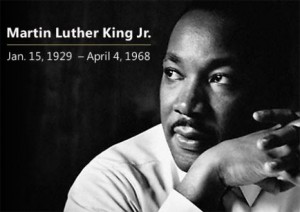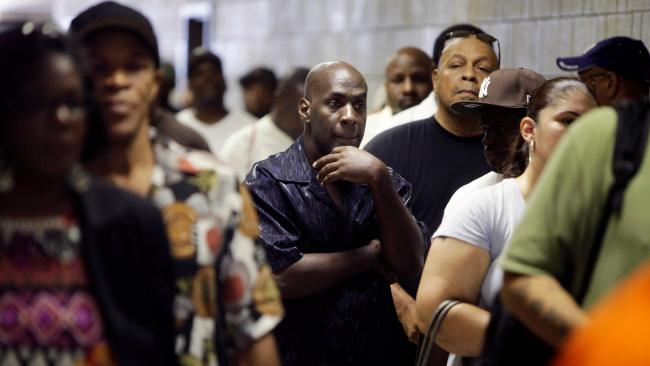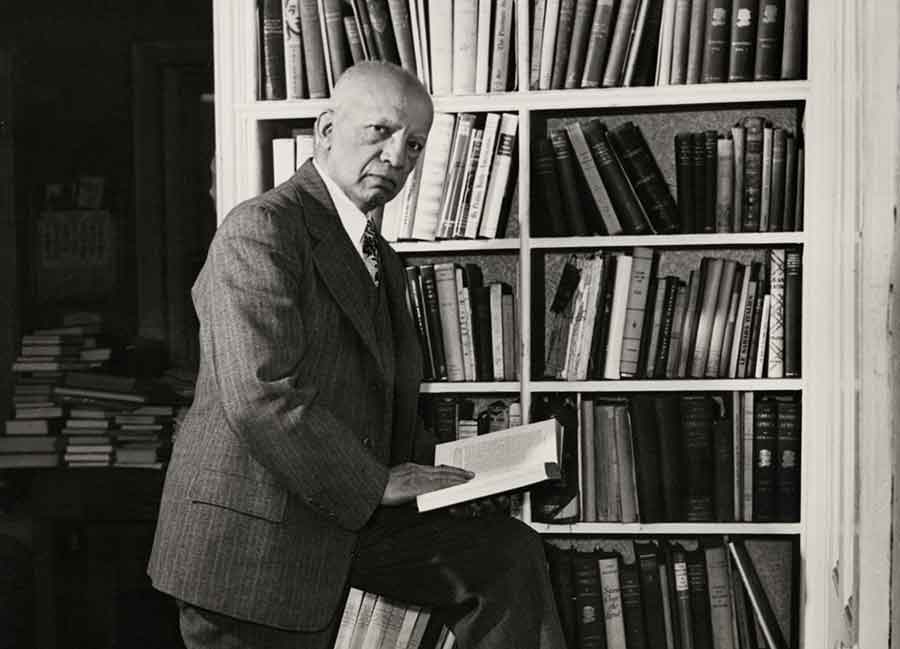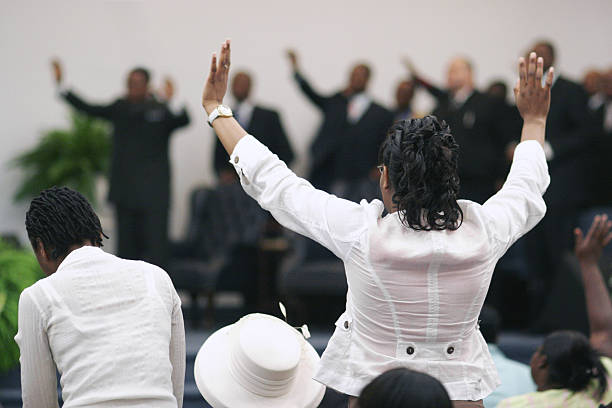(ThyBlackMan.com) It is quite the conundrum for one individual to simultaneouslyoccupy a position as one of its most notable and noble citizens and one of its most misrepresented in the public arena. The Rev. Dr. Martin Luther King, Jr., is that individual. In the historical recollections and reconstructions of progressive-minded Americans, Dr. King is celebrated as “the dreamer” who encouraged our populace to strive for a moment when racial identity was no more notable than eye color. In these well-worn historical reconstructions, “the content of one’s character” was all that mattered. Unfortunately for King’s legacy, the alluded to reconstructions sit at the core of why most historians agree that Dr. King’s legacy has been skewed, if not intentionally misrepresented during the half-century following his assassination at the Lorraine Motel in Memphis, Tennessee.
Rest assured that I am not particularly disturbed if you happen to be one of those people who take issue with the above contention that the legacy of the Rev. Dr. Martin Luther King, Jr., has been misunderstood and therefore misrepresented in the 50 years since an assassin’s bullet silenced “the dreamer.”
This day that has been set aside to honor Dr. King always leads me to reflect on Dr. King and how much of his message to the world has been overshadowed, if not totally silenced by the monumental words this American icon delivered on August 28, 1963 during ‘the March on Washington for Jobs and Freedom.’ In many ways, it is ironic that it is Dr. King’s gradually increasing radicalism that occurred during the post-March on Washington for Jobs and Freedom period of his public life that has remained hidden from an American populace that remains enchanted by his hopeful words delivered on that late August day in 1963.
on Washington for Jobs and Freedom.’ In many ways, it is ironic that it is Dr. King’s gradually increasing radicalism that occurred during the post-March on Washington for Jobs and Freedom period of his public life that has remained hidden from an American populace that remains enchanted by his hopeful words delivered on that late August day in 1963.
Those who have studied Dr. King realize that the most significant aspects of his role as a Civil Rights activist. According to historian Anthony Quinn, “Dr. King is remembered as ‘The Dreamer’ whose greatest goal was the ending of racial discrimination. That is only part of his story, so that makes it at best a partial lie.”
Ironically, most of those who will stand on stages celebrating Dr.King’s legacy is totally aware of the ideological transformation that Dr. King underwent after his vaunted March on Washington for Jobs and Freedom speech. It is not a stretch to state that those fashioning themselves as King supporters have imprisoned his legacy by ignoring the increasing radicalism that occurred during the last five years of his life. When considered in the harshest light possible, such individuals could be considered opponents to Dr. King’s final vision. According to Mike Hinton, “The Dr. King that was speaking out against poverty and the Vietnam-War is a figure that would disturb the vast majority of Americans. It is one of the reasons why we don’t deal with it. We prefer to portray Dr. King as an accommodating, self-sacrificing, and eternally optimistic figure who never tired of the economic equality occurring throughout this nation. And that is simply a lie, a lie of major proportions.”
An examination of Dr. King’s post-March on Washington for Jobs and Freedom speeches and writings reveal a radicalized figure that stands in stark contrast to the long-suffering accommodationist tag that has been unfairly affixed to the Civil Rights icon for far too long. The alluded to latter writings and speeches reveal a Dr. King that would frighten many of those who have claimed ownership of his legacy for the own selfish reasons. It is during the post-March on Washington for Jobs and Freedom period that Dr. King offers the following view of America’s misunderstanding regarding the path to racial justice. According to Dr. King,
[W]ith Selma and the Voting Rights Act one phase of development in the civil rights revolution came to an end. A new phase opened, but few observers realized it or were prepared for its implications. For the vast majority of white Americans, the past decade — the first phase — had been a struggle to treat the Negro with a degree of decency, not of equality. White America was ready to demand that the Negro should be spared the lash of brutality and coarse degradation, but it had never been truly committed to helping him out of poverty, exploitation or all forms of discrimination. The outraged white citizen had been sincere when he snatched the whips from the Southern sheriffs and forbade them more cruelties. But when this was to a degree accomplished, the emotions that had momentarily inflamed him melted away,
When Negroes looked for the second phase, the realization of equality, they found that many of their white allies had quietly disappeared. Negroes felt cheated, especially in the North, while many whites felt that the Negroes had gained so much it was virtually impudent and greedy to ask for more so soon.
King feared that since many Americans foolishly considered the Civil Rights and Voting Rights Acts a magical cure-all for the nation’s race problem, its failure would disappoint many.
Dr. King realized that Lyndon Baines Johnson’s 1964 Civil Rights Act and 1965 Voting Rights Act secured equality on the law books of America, a feat that must not be ignored as Blacks had never been equal in the eyes of the law at any earlier period in this nation’s history, however, this theoretical equality had no impact on the average Negroes day-to-day existence, particularly in regards to delivering jobs, money, or housing. If allowed to speak today, I am quite confident that the Dr. King who has been silenced by the heaps of adoration placed on his “I have a dream” motif would take powerful whites and conservative blacks to task by reminding them that although the alluded to legislative acts secured theoretical equality for the Negro, the subsequent stage, the exercise of equality, had yet to occur. According to King,
“(t)he practical cost of change for the nation up to this point has been cheap. The limited reforms have been obtained at bargain rates. There are no expenses, and no taxes are required, for Negroes to share lunch counters, libraries, parks, hotels, and other facilities with whites.”
There was no equivocating in King’s mind that whites, including the so-called liberals that Minister Malcolm X routinely took to task, were not prepared to share politico-economic power with Black America. This reality simultaneously served as a crushing blow to the hopes for racial justice for thousands of politically naïve blacks pursuing integration and emboldened an insurgent population of young black activists seeking liberation “by any means necessary.” According to Dr. King,
…had taken the President, the press and the pulpit at their word when they spoke in broad terms of freedom and justice . . . The word was broken, and the free-running expectations of the Negro crashed into the stone walls of white resistance.
Dr. King predicted that the white community’s resistance to racial equality would invariably push an impatient group of young blackactivists toward an impatient “Black Power” politic. The radicalizing figure that Dr. King was transforming into after the March on Washington for Jobs and Freedom articulated an interesting, yet totally ignored by contemporary depictions of the Civil Rights icon, view of both the language and imagery supporting Black Power politics. Although the extreme shift in movement strategies and goals saddened King, the Civil Rights stalwart was sensible enough to realize from whence the articulated disappointment emanated. From Dr. King’s perspective,
Many of the young people proclaiming Black Power today were but yesterday the devotees of black-white cooperation and nonviolent direct action.… If they areAmerica’s angry children today, this anger is not congenital. It is a response to the feeling that a real solution is hopelessly distant because of the inconsistencies, resistance and faintheartedness of those in power.
The conscious decision of today’s black leadership to ignore the teachings and lamentations of a radicalized King can only be considered an inexcusable betrayal of his most powerful moments as a race leader. It appears that the alluded to leaders are ashamed to publicly state Dr. King’s developing belief that whites did not possess a moral compass capable of guiding them toward any semblance of racial equality. Even a cursory examination of Dr. King’s public life reveals that by 1965, the year that LBJ signed the Voting Rights Act and the Watts Rebellion occurred, King abandoned persuasive speeches aimed at the white man’s morality. One is left with no other conclusion than, Dr. King no longer believed that white Americans would ever abandon their devout commitment to racial bigotry and discriminatory activities.
The above realities led Dr. King to realize that the most sensible path to Black liberation was for African-Americans to forego a continuation of failed efforts “to integrate into a burning house” and pool their politico-economic resources for the uplift of Black America. Although many find it comforting and politically expedient to ignore these facets of Dr. King’s intellectual legacy, such dishonesty seeks to hide Dr. King’s final efforts at saving this nation from a future of unprecedented racial conflict and economic inequality. During the last twenty-four months of his life, Dr. King dedicated much of his time to addressing the cavernous gap between this nation’s rich and poor. Such a focus serves as the catalyst for the following statement.
As long as there is poverty in the world I can never be rich, even if I have a billion dollars. As long as diseases are rampant and millions of people in this world cannot expect to live more than twenty-eight or thirty years, I can never be totally healthy even if I just got a good checkup at Mayo Clinic. I can never be what I ought to be until you are what you ought to be. This is the way our world is made. No individual or nation can stand out boasting of being independent. We are interdependent.
As evidenced by ‘the Poor People’s Campaign’, Dr. King’s final social movement, we must also not forget that Dr. King was in Memphis, Tennessee, the location where he would be assassinated, speaking on behalf of sanitation workers striking for increased wages and better working conditions, ‘the Dreamer’ had awakened and made several important conclusions regarding America. Most notable of these conclusions was the realization that mankind was “…caught in an inescapable network of mutuality, tied in a single garment of destiny. Whatever affects one directly, affects all indirectly.”
It is Dr. King’s assertion that we are inextricably connected to one another that should motivate and guide those who seek to honor Dr. King. It is the only path that we have to avoid a harsh judgment that the Civil Rights patriarch warned us about. According to Dr. King, “History will have to record that the greatest tragedy of this period of social transition was not the strident clamor of the bad people, but the appalling silence of the good people.”
It is this final call that best represents Dr. King, however, such an expression will continue to be ignored because it places the onus for activism on the backs of everyday Americans. Dr. King’s call means that each of us, particularly those to whom much has been given, are existing under a mandate that orders us to loosen our grip on worldly things to pursue the sweetest things that this world has to offer, yet has never experienced: racial equality, gender equity, universal health care, and the ending of hunger throughout the planet to name just a few.
Staff Writer; Dr. James Thomas Jones III
Official website; http://www.ManhoodRaceCulture.com
One may also connect with this brother via Twitter; DrJamestJones.

















Leave a Reply